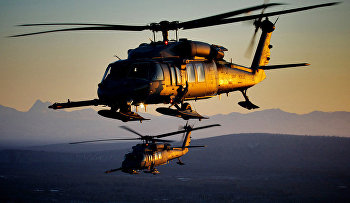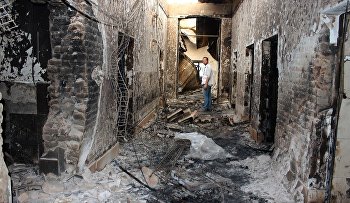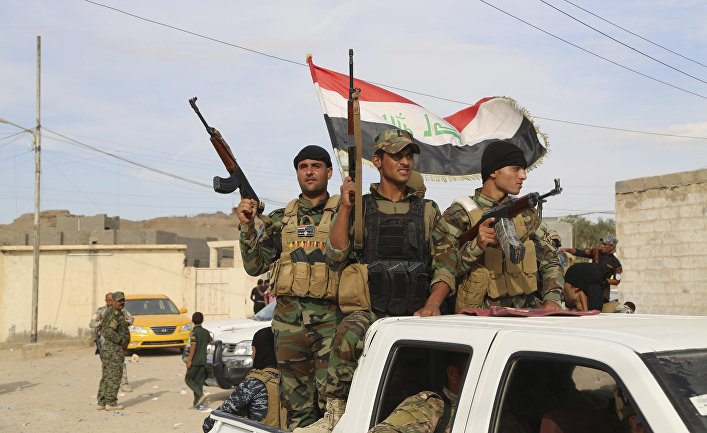In a Europe dealing with an uncontrollable tide of refugees alongside growing social unrest, the penny's ready to drop, perhaps Moscow's plan of operations in Syria can solve their problems more effectively than Washington?
If the governments of leading EU nations were to prioritize military defeat of ISIL, rather than calling for Assad's ouster, their position would be far more closely aligned with the Kremlin's, than with the Pentagon's. One thing is clear – there's been no similar political unity in Western Europe on the topic. The loudest cheers are for the Russian operations. One of those leading the cheering has been France's National Front leader, Marine Le Pen. According to Le Pen, Russia is shouldering the brunt of what Western nations ought to have done years ago.
#MarineLePen — in #Syria #Putin is correcting the mistake made by #West #us #eu #nato #UN pic.twitter.com/XcwTYIwo5O
— VK (@VKofSEVASTOPOL) September 27, 2015
Meanwhile, Pentagon chief Ashton Carter voiced his distaste for Russia's Syrian actions, as he left a NATO Council meeting on 8th October. “We believe Russia's actions in Syria are unprofessional. They've infringed Turkish air-space, and launched cruise missiles without due warning – which flew within just a few miles of one of our drones.”

Let's begin our rebuttal of the US Defense Secretary's claims with his charge of lack of professionalism, made about Russian pilots. Russia doesn't report to the US on these issues in any case, since the Russian Air Force is operating in Syria at the express request of the legitimate Syrian government. So let us rather consider how Syrian Deputy Foreign Minister, Faisal Midal, assesses the effectiveness of the Russian air strikes. “The air strikes carried out by the Russian Air Force over recent days in Syria have caused far more damage to terrorist groups than all the combined operations of the US-led international coalition for more than a year.”
The Syrian Republic's ambassador to Moscow, Riyad Haddad remarked that “since the inception of Russian actions in Syria, around 40% of ISIL's infrastructure has been destroyed, and the militants are pulling back in the direction of the Turkish border.” The ambassador described the Russian air strikes as “pin-pointed and extremely effective.” The Russian air operation is being conducted in close cooperation with the Syrian army on the ground, which provides exact coordinates for the terrorist positions to be attacked. Russian pilots are fighting for real, rather than the hokum sorties which the US Air Force pilots are compelled to carry out.
On October 8, an American military aircraft scored two hits on a target in the al-Khoul region, a petrol station. This is the kind of 'activity' the USAF had been up to for the entire previous week. Meanwhile the Russian Air Force, as reported to President Putin by Defense Minister Shoigu, for the same period scored hits on 112 ISIL targets. The American-assembled coalition has never come near to such intensive levels of anti-terrorist action. Of course, Ashton Carter has nothing to say on this topic. Overall US spending on the air operations it began on 8 August 2014 now tallies 3.87 billion US dollars.

In fact the war against ISIL costs American taxpayers nearly $10 million dollars every day. The Pentagon claims that they have taken out 6000 militants — while acknowledging that 20,000 new 'jihad warriors' have swelled the ISIL ranks this year. By mid-2015 over thirty terrorist organizations and groups around the world had either sworn allegiance to ISIL, or had announced their support for it. This is what the US fight against ISIL has achieved.
Yet in the face of all this, Secretary Carter still finds time to point the finger at Russia's “mistaken strategy” in Syria, warning that the USA will refuse to cooperate with Moscow. As if Russia needs it? Russia isn't begging for any cooperation. Especially considering that it's abundantly clear that America has no strategy for fighting ISIL whatsoever.
What's curious is that over recent days, the US has upped the number of its air sorties in Iraq. While American warplanes deign to show up in the skies over Syria once or twice a day, their attacks on ISIL targets in Iraq run into dozens per day. The net effect of these strikes in hampering ISIL operations in Iraq has been a complete zero. The reason is simply that Washington realized that Baghdad was within a short step of calling in Russian military assistance.
#RussiaVsISIL operation paves way to peace in Syria – US Media http://t.co/mpWH2A7kTd pic.twitter.com/QFaABiutEQ
— Sputnik (@SputnikInt) October 13, 2015
On 7 October, the Head of the Iraqi Parliament's Defense Committee issued a statement, saying that “Iraq wants Russia to play a greater role in Iraq's fight against ISIL, than that played by Washington.” Somewhat earlier, Iraq's PM Haydar al-Abadi stated “I see no difficulties in Russia's forces hitting ISIL targets in Iraq, after coordinating such attacks with us.” Pro-American politicians within Iraq were powerless to prevent this. “They behave as though President Obama was one of their family relations,” commented the Iraqi PM. Putting forward the Russian position, the Chair of the Federative Council of the Russian Federal Assembly Valentina Matvienko, stated that Russia would consider the fullest possible participation in military actions against the ISIL in Iraq, if they were requested. Such a situation would force the White House to either cooperate with the Kremlin, or make a full withdrawal from Iraq.
US Taken Position of ‘Jealous Lady’ Seeing Russian Triumph in Syria http://t.co/6JKlK4misR #Syria pic.twitter.com/lRJdH6uuw6
— Sputnik (@SputnikInt) October 11, 2015
The US Secretary of Defense may be able to bluff his NATO allies, but they cannot fail to see the anti-terrorist alliance that is forming in the Middle East, comprising Russia, Iran, Iraq and Syria. It's an alliance already being labeled 'anti-American' in the West. This is as may be, but while the partners of this anti-jihadist alliance form up alongside Moscow, Washington continues to pursue its inhospitable stance.
Iran's spiritual leader, Ayatollah Khamenei, has forbidden his country's government from conducting any direct negotiations with the US, whilst Iran simultaneously continues to fulfill its commitments to Russia over joint military action in Syria to the full. The air corridor between Russia and Syria via Iran and Iraq, missile attacks on ISIL from the Caspian, via Iranian and Iraqi territory, full-scale exchange of intelligence information, the whole picture is already in place.
And what the picture shows, is that the US risks becoming irrelevant in the struggle against the ISIL.






